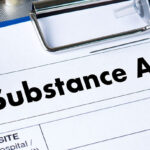


Substance Abuse Drug Testing: Implementation and Challenges
June 26, 2023


The Role of Drug Testing in Pain Management Programs
June 27, 2023The pros and cons of random drug testing in the workplace are a topic that elicits much debate. Organizations may bring in random drug testing to guarantee a secure working atmosphere, safeguard workers, and reduce the hazards related to substance misuse.
However, there are complexities surrounding these practices. This blog post delves into the benefits of random drug testing, discussing how it can prevent accidents and detect illicit substances use among staff members.
We will also tackle the challenges employers face when implementing this strategy – from respecting employee rights to managing potential backlash.
In addition, we'll explore the accuracy of various types of tests like urine testing or pre-employment drug screens for reliable results. Finally, we’ll discuss alternatives to random drug testing in the workplace if your company is considering other options for maintaining safety and productivity.
Benefits of Random Drug Testing
Random drug testing in the workplace can be a beneficial asset for employers, providing various advantages that support an improved and more efficient work atmosphere. Random drug testing is not designed to be punitive but rather a measure of protection for employees and their colleagues.
Deterrence Against Substance Abuse:
The mere presence of random drug testing policies can deter employees from using drugs. The unpredictability of such tests makes it risky for individuals to use substances if they know they could be tested at any time. This deterrent effect helps maintain a drug-free workplace, promoting safety and productivity.
Promotes Employee Health & Safety:
Drug abuse can lead to impaired judgment, increased risk of accidents, or health issues - all detrimental factors in the workplace. By implementing random drug testing, companies show commitment towards ensuring employee health and safety.
Maintains Productivity Levels:
Substance abuse is often linked with decreased productivity due to absenteeism or reduced efficiency while on duty. Random drug testing allows employers an opportunity to address this issue before it significantly impacts the company's bottom line.
Better Compliance with Regulations:
In some industries like transportation or healthcare where public safety is paramount, regular drug screening is mandated by law (Department Of Transportation regulations). In such cases, conducting random tests ensures compliance with legal requirements as well as industry standards.
Fosters Trust & Transparency:
Last but not least, when implemented correctly (with clear communication about policies), random drug testing fosters trust among staff members knowing everyone is held accountable equally without bias - thereby creating an atmosphere conducive for teamwork and mutual respect.
In essence, while there might be challenges associated with its implementation (which we will discuss later), the advantages offered by random drug screening make it worth considering within your organization's broader strategy towards maintaining a healthy work environment.
Challenges of Random Drug Testing
Random drug testing can be a beneficial practice, yet its implementation may come with various difficulties such as financial burden, extended time frames and legal complications. These obstacles may include high costs, time consumption, and potential legal issues.
The High Cost of Implementation
Random drug testing is not cheap. Employers must purchase drug testing supplies, hire trained professionals to administer the tests, and pay for lab analysis fees. The price tag can become hefty in larger companies where multiple staff members need to be tested on a regular basis.
Time-Consuming Process
Besides the financial burden, random drug testing is also time-consuming for both employers and employees. From gathering samples to waiting for results, this process takes away valuable working hours that could have been used more productively elsewhere within the company.
Potential Legal Issues
If not implemented correctly or fairly across all staff members, random drug tests might lead to legal complications such as discrimination lawsuits or invasion of privacy claims. It's essential that companies consult with their legal team before initiating any form of workplace substance abuse screening program.
Navigating Employee Rights
Employee rights regarding random drug testing should always be considered when implementing these programs in your organization's policy framework. Employees have certain rights, including refusing a test or challenging results legally, which employers must respect while ensuring they are abiding by local laws and regulations concerning workplace safety measures like these screenings.
Accuracy of Random Drug Testing
Random drug testing is a tool that employers use to ensure a safe and productive work environment. Despite their accuracy, random drug tests may be subject to scrutiny.
The Science Behind Drug Tests
Scientific studies show that most random drug tests are generally accurate when performed correctly. These tests typically involve analyzing urine samples for traces of illicit substances such as marijuana, cocaine, opioids, amphetamines, and more.
Potential Issues with Test Results
Though usually reliable, inaccuracies can occur due to mistakes made by humans or technical problems. For instance:
- A test may yield a false positive if an employee has consumed certain legal medications or foods that can trigger similar responses in the body as illegal drugs.
- A false negative might occur if an individual has found ways to tamper with their sample or if they've used drugs that aren't commonly tested for.
Mitigating Errors in Drug Testing
To minimize errors during random drug testing processes, companies like Halux Diagnostic recommend using advanced technology and following strict protocols throughout the entire process - from collection to analysis. Additionally, confirming initial positive results with secondary confirmatory tests can help eliminate potential mistakes caused by cross-reactivity or other factors.
The Role of Certified Laboratories
Involving certified laboratories in conducting random drug tests also enhances accuracy levels significantly because these labs follow stringent procedures set forth by regulatory bodies like SAMHSA. They employ highly trained professionals who adhere strictly to best practices, thereby minimizing chances for errors. This ensures not only accuracy but also fairness towards employees who undergo this procedure - making it a win-win situation for both parties involved.
Employee Rights Regarding Random Drug Testing
When it comes to random drug testing in the workplace, employees have rights that protect them from potential misuse or abuse of such policies by employers.
The Right to Refuse a Test
Employees have the right to refuse a drug test, but this may come with consequences depending on company policy and state laws. Some companies may terminate employment or take disciplinary action if an employee refuses a drug test without a valid reason.
The Right to Challenge Results
If an employee believes they received false positive results due to technical issues or human error, they can legally challenge the findings. The ACLU furnishes information and advice on how to go about contesting inaccurate results from drug tests that could be due to technical or human errors.
The Right to Privacy
Employees have the right to privacy during drug testing. Employers must ensure that tests are conducted privately and professionally without causing unnecessary embarrassment or discomfort.
Limits On When And How Tests Can Be Conducted
- Fairness: Companies cannot selectively target specific employees for random testing based on discriminatory factors like race, gender, or age.
- Scheduling: Most states require employers to give notice before conducting random drug tests.
- Dignity: Employees should be treated with respect during all stages of testing.
To summarize, while employers have legitimate reasons for implementing random drug testing at work, it's crucial that these programs are implemented fairly and that employees know their rights within these procedures as well as outside them when necessary. For more information on employee rights regarding drug testing, check out the ACLU's resources.
Alternatives to Random Drug Testing
Random drug testing may be beneficial in keeping a secure work environment, however it is not the only approach available. Consider these alternatives:
Pre-Employment Screening
Screening job candidates for drug use before hiring them sets clear expectations and ensures a drug-free workplace from the start.
Regular Health Checks
Regular health checks can identify potential issues related to substance abuse, including physical and mental health assessments.
Educational Programs on Substance Abuse Prevention
Education programs inform employees about the dangers of drugs and provide resources for seeking help if needed.
The Role of Employee Assistance Programs (EAPs)
EAPs offer confidential counseling services for employees dealing with personal issues like stress, depression, or addiction that may affect their job performance.
Remember, each alternative has its pros and cons, so evaluate carefully before deciding.
FAQs in Relation to the Pros and Cons of Random Drug Testing in the Workplace
Pros and cons of drug testing in the workplace: is it worth it?
Against random drug testing in the workplace: why it's a bad idea?
Benefits of conducting regular employee drug tests: keeping your workplace safe and productive.
Politics, personal experiences, religion, discrimination, and controversial topics are off-limits.
Conclusion
The Pros and Cons of Random Drug Testing in the Workplace
- Random drug testing can deter drug use and improve safety in the workplace.
- However, it can also lead to legal issues and concerns over accuracy.
- Employers must follow employee rights regarding random drug testing and consider alternative methods for maintaining a safe work environment.
According to Nolo, employees have the right to privacy and protection from unreasonable searches.
While drug testing may seem like a quick fix, it's important to weigh the pros and cons before implementing it in the workplace.
Remember, a safe work environment is important, but so is respecting employee rights.





